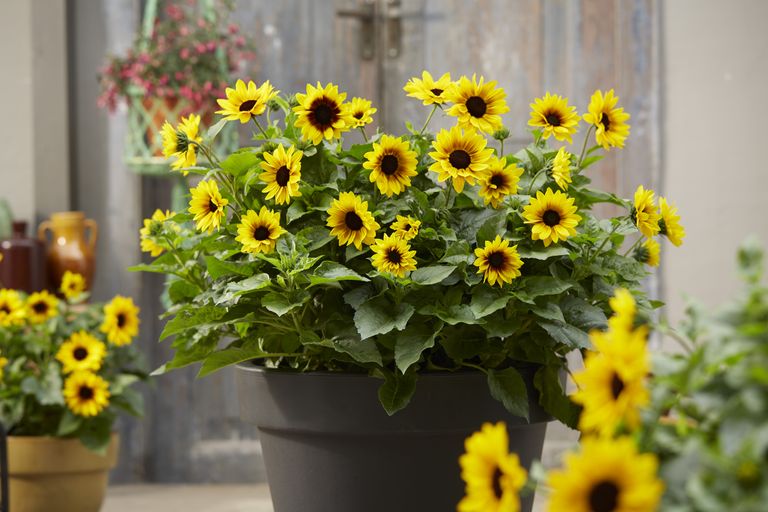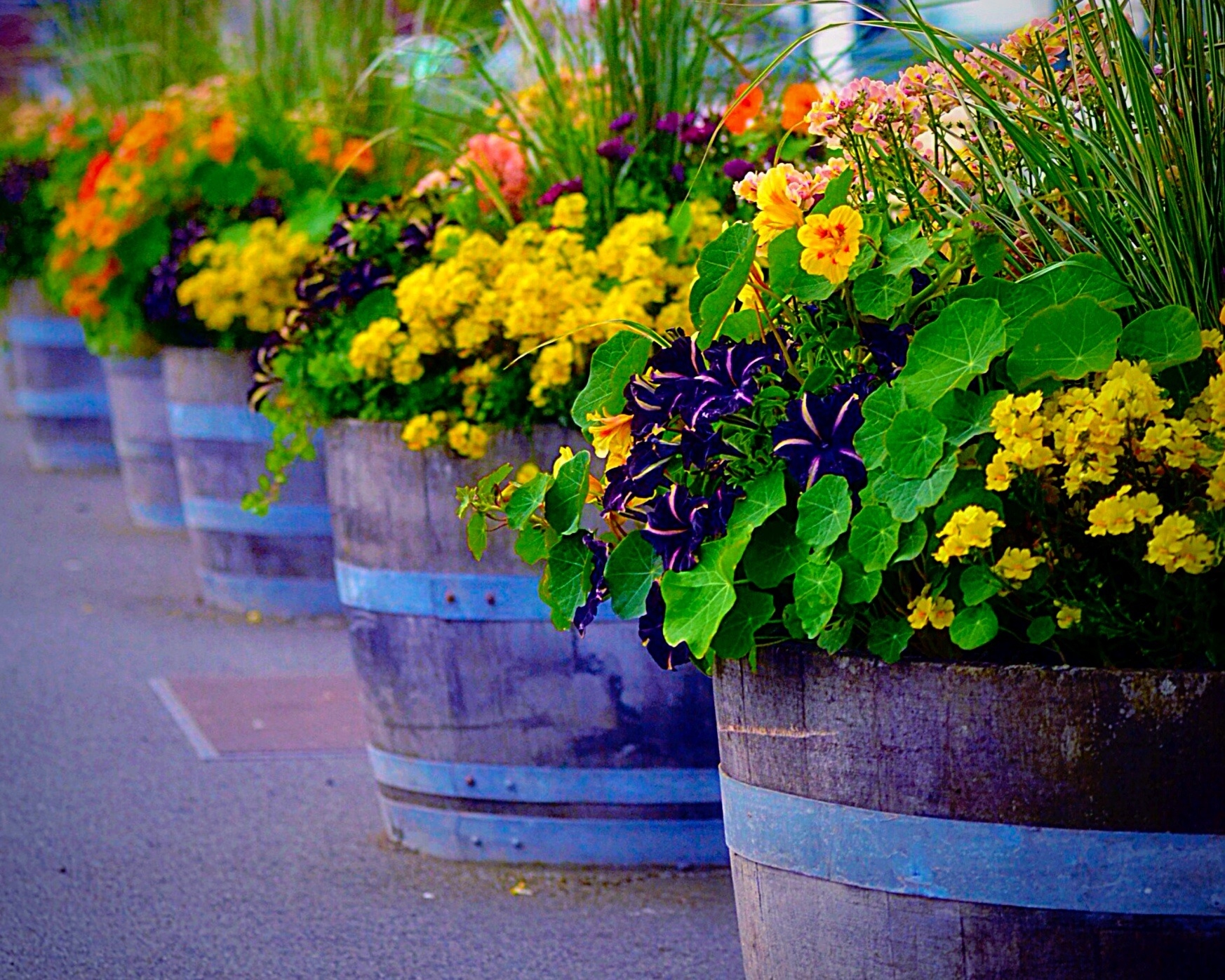Grow Easy Flowers in Pots: A Beginner's Guide

Are you dreaming of a vibrant, blooming garden but feel constrained by limited space or time? Welcome to the world of container gardening, where even the smallest patio or balcony can become a lush oasis. Growing easy flowers in pots is not only a rewarding hobby but also a fantastic way to brighten up your urban gardening space. Let's dive into this beginner-friendly guide and discover how you can transform your flower pots into a flourishing haven.
Why Choose Container Gardening?
Container gardening is the perfect solution for those who want to enjoy the beauty of flowers without the hassle of maintaining a large garden. Whether you live in an apartment with a small balcony or have a patio that needs a splash of color, easy care flowers in pots can bring life and vibrancy to your space. Plus, container gardening allows you to move your plants around, ensuring they get the best light and conditions.
Getting Started: Essential Tools and Supplies
Before you dive into planting, you'll need a few essential tools and supplies. Here's a quick checklist to get you started:
- Flower Pots: Choose pots with drainage holes to prevent waterlogging.
- Potting Soil: Opt for a well-draining, nutrient-rich mix.
- Watering Can: A small watering can with a fine nozzle is ideal.
- Gloves: Protect your hands while gardening.
- Trowel: Useful for planting and repotting.
Choosing the Right Flowers for Your Pots
Selecting the right flowers is crucial for a successful container garden. Here are some easy flowers to grow in pots that are perfect for beginners:
1. Pansies
Pansies are known for their vibrant, multi-colored blooms and are incredibly easy to care for. They thrive in cooler temperatures and can add a pop of color to your patio plants.
2. Marigolds
Marigolds are hardy and low-maintenance, making them ideal for container gardening. They come in a variety of colors and sizes, and their bright blooms can attract beneficial pollinators.
3. Petunias
Petunias are a classic choice for flower pots. They come in a wide range of colors and require minimal care. Plus, they can bloom from spring to fall, providing long-lasting beauty.
4. Geraniums
Geraniums are known for their bright, showy flowers and are easy to grow in pots. They prefer full sun and well-draining soil, making them perfect for patio plants.
5. Impatiens
Impatiens are shade-loving flowers that thrive in containers. They come in a variety of colors and are perfect for brightening up shady corners of your garden.
Planting Tips for Success
Once you've chosen your flowers, it's time to get planting. Here are some tips to ensure your container garden thrives:
1. Choose the Right Pot
Select a pot that is the right size for your plant. A pot that is too small can restrict growth, while a pot that is too large can lead to overwatering.
2. Ensure Proper Drainage
Make sure your pots have drainage holes to prevent waterlogging, which can lead to root rot. You can also add a layer of gravel or pebbles at the bottom of the pot to improve drainage.
3. Use High-Quality Potting Soil
Invest in a good-quality potting mix that is well-draining and nutrient-rich. This will provide your plants with the best growing conditions.
4. Plant at the Right Depth
Plant your flowers at the same depth as they were in their original containers. This ensures that the roots have enough room to grow and the plant is stable.
5. Water Wisely
Water your plants regularly, but avoid overwatering. A good rule of thumb is to water when the top inch of soil feels dry.
Caring for Your Container Garden
Caring for your container garden is relatively simple. Here are some tips to keep your plants healthy and blooming:
1. Light Requirements
Different flowers have different light requirements. Make sure to place your pots in areas that provide the right amount of sunlight for your plants.
2. Fertilizing
Use a balanced, water-soluble fertilizer to provide your plants with the nutrients they need. Follow the instructions on the package for the best results.
3. Pruning
Regular pruning can encourage bushier growth and more blooms. Remove dead or damaged leaves and flowers to keep your plants looking their best.
4. Pest Control
Keep an eye out for pests and diseases. Use organic or chemical pesticides as needed, following the manufacturer's instructions.
Troubleshooting Common Issues
Even with the best care, issues can arise. Here are some common problems and how to solve them:
1. Wilting Leaves
Wilting leaves can be a sign of overwatering or underwatering. Check the soil moisture and adjust your watering schedule accordingly.
2. Yellowing Leaves
Yellowing leaves can indicate a nutrient deficiency. Try fertilizing your plants and make sure they are getting enough light.
3. Pests
Pests like aphids and spider mites can be a problem. Use insecticidal soap or neem oil to control pests naturally.
4. Diseases
Fungal diseases like powdery mildew can affect your plants. Improve air circulation and avoid overwatering to prevent these issues.
Conclusion
Growing easy flowers in pots is a rewarding and enjoyable way to bring nature into your urban gardening space. With the right tools, flowers, and care, you can create a beautiful and thriving container garden. So, what are you waiting for? Grab your gloves, choose your favorite flowers, and start planting!
FAQs
1. What are the best flowers to grow in pots for beginners?
Some of the best flowers to grow in pots for beginners include pansies, marigolds, petunias, geraniums, and impatiens. These flowers are easy to care for and thrive in containers.
2. How often should I water my container garden?
Water your container garden when the top inch of soil feels dry. The frequency will depend on the type of plant, the size of the pot, and the weather conditions.
3. Can I grow flowers in pots without drainage holes?
It is not recommended to grow flowers in pots without drainage holes, as this can lead to waterlogging and root rot. If your pot doesn't have drainage holes, consider drilling some or using a pot with built-in drainage.
4. How do I know if my plants are getting enough light?
If your plants are getting enough light, they will have healthy, green leaves and produce plenty of blooms. If the leaves are yellowing or the plant is leggy, it may not be getting enough light.
5. What should I do if my plants are infested with pests?
If your plants are infested with pests, use insecticidal soap or neem oil to control them naturally. Follow the manufacturer's instructions for the best results.


Happy gardening!
0 Response to "Grow Easy Flowers in Pots: A Beginner's Guide"
Post a Comment